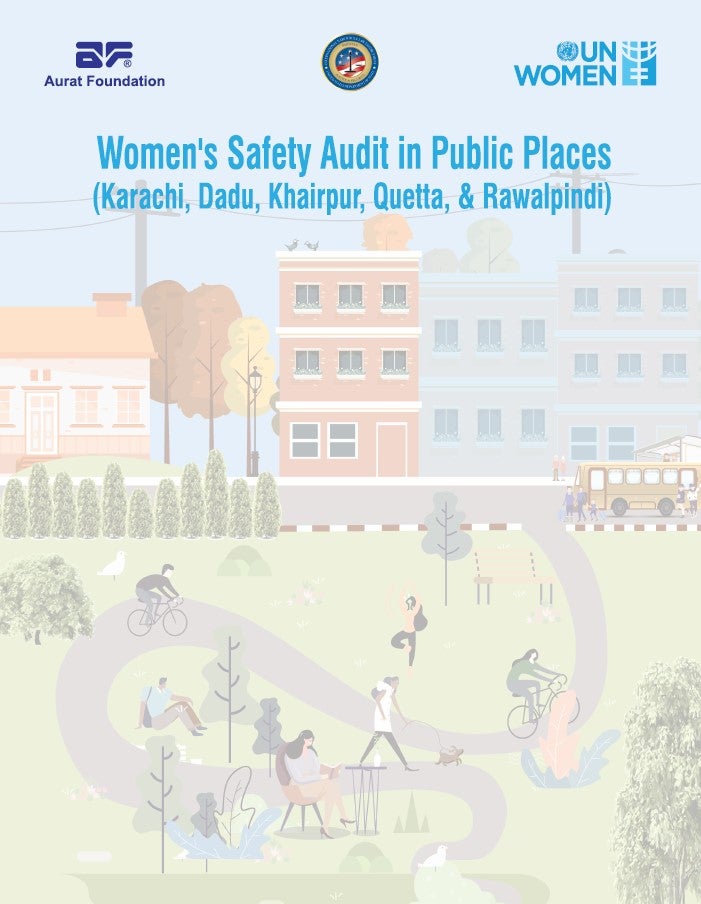
Women’s Safety Audit in Public Places

(Karachi, Dadu, Khairpur, Quetta, & Rawalpindi)
UN Women Pakistan, with Aurat Foundation as research partner, and in collaboration with key government and civil society partners, conducted a Women’s Safety Audit (WSA) in 5 cities across Pakistan, including Karachi, Dadu, Khairpur, Quetta and Rawalpindi, in order to better understand the status of women’s access to safe public spaces. Rigorous data analysis based on robust tools and methodology, collection of empirical evidence and comprehensive statistical examination was done to deduce findings of this important report in order to ensure the results are reached in a scientific manner and the recommendations are both pragmatic and effective.
The audit report can be seen as a significant milestone in UN Women’s efforts to support the Government of Pakistan in identifying gaps and challenges that hinder provision of safe public spaces and services for women in the country. The study further highlights safety concerns of women and girls using public and private transport and in public places in the selected districts and also aims to identify factors that may lead to increased VAWG as well as provide recommendations to make public spaces safer and more women-friendly.
The WSA aims to achieve the following objectives:
- Collect and compile evidence-based data, inputs, suggestions and recommendations on barriers to women and girls’ safety and security in public spaces in Karachi, Dadu, Khairpur, Quetta and Rawalpindi.
- Develop policy advocacy recommendations and evidence-based actions to improve the service delivery and public infrastructure and to avert and respond to VAWG by identifying the gaps in services based on the audit findings.
- Create and increase the spaces for women and girls’ public participation in policy making and programme design.
The study proposes policy advocacy recommendations and evidence-based actions to improve service delivery and public infrastructure and to prevent and respond to VAWG by identifying gaps in services based on the findings, along with increasing the space for women and girls’ participation in policy-making and programme design.